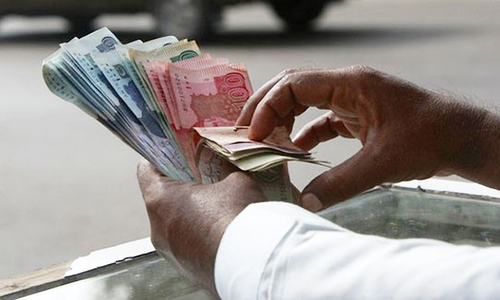ISLAMABAD: The Supreme Court on Thursday decided to hold day-to-day hearing of a number of pending cases relating to the Gas Development Infrastructure Cess (GIDC) when the matter will again be taken up next month.
When the case was taken up by a three-judge Supreme Court bench headed by Justice Mushir Alam on Thursday, Advocate Rashid Anwar told the court that senior counsel Khalid Anwar, who was appearing in nine different cases, was indisposed and, therefore, could not make it to the court.
Attorney General Anwar Mansoor, however, told the bench he had rushed back from Washington only to attend the case and would be flying back on Friday to attend to some crucial legal matters.
Senior counsel Makhdoom Ali Khan, representing a number of CNG station owners, was also not present in the court.
The court, however, postponed further proceedings with an observation that day-to-day hearing will be held when the case will be taken up again. And in case the lawyers could still not make it, they should make prior arrangements so that any lawyer from their team can advance arguments.
“There is no escape, video link is available,” observed Justice Mushir Alam.
Earlier on Sept 6, the federal government through the AG had furnished a request to the Supreme Court for out-of-turn hearing of pending GIDC cases.
A formal application was submitted by Attorney General Anwar Mansoor to the court.
Earlier, Prime Minister Imran Khan, while withdrawing the GIDC (Amendment) Ordinance, 2019, had directed the AG to move the application for urgent hearing in the Supreme Court so that the matter could be decided at the earliest, strictly in accordance with the law and the Constitution.
The matter regarding the GIDC gained attention when the present government promulgated a controversial ordinance last week with an offer to grant Rs210 billion financial amnesty to big businesses, including fertiliser firms, general industry, IPPs, generation companies, K-Electric and the CNG sector.
A statement issued by the PM Office had conceded that from Jan 2012 till Dec 2018, the total amount stuck in the GIDC litigation had risen to Rs417 billion.
The government’s application before the Supreme Court had stated that the cases relating to the GIDC Act, 2015, involved huge sums of government revenue.
The matter has been pending since 2017 and petitions have been filed against the judgement passed by the Peshawar High Court upholding vires of the law.
“Due to the fact that a huge quantum of government revenue is stuck on account of the present cases, it is, therefore, prayed that the court may take up the cases out of turn,” the application contended.
Through its May 31, 2017, order, the PHC had rejected a set of petitions challenging the validity of the GIDC Act, 2015, on the grounds that the transgression of legislative authority by the federation did not qualify as a breach of fundamental rights of citizens and, therefore, the petitioners before the high court were not aggrieved persons within the meaning of Article 199 of the Constitution and thus have no locus standi to challenge the validity of the act.
The high court in its judgement had also held that when Article 142 (a) of the Constitution was read with Article 154, it became evident that parliament had the exclusive authority to legislate on Entries in Part II of the Federal Legislative List of the Constitution.
The GIDC Act was approved in December 2011 by the National Assembly imposing the cess on gas consumers, other than domestic ones, to develop infrastructure for a number of projects, including the Iran-Pakistan pipeline project, Turkmenistan-Afghanistan-Pakistan-India pipeline project and liquefied natural gas (LNG) project, and for price equalisation of imported alternative fuels including LPG (liquefied petroleum gas).
But in April 15, 2015, the Supreme Court had rejected the federal government’s petition seeking to review its Aug 22, 2014, verdict and clarify that the collection of then over Rs100 billion under the GIDC Act was not liable to be refunded to the industrial consumers of gas from whom it was recovered.
The then GIDC law had legalised the recovery of GIDC from the non-domestic consumers, mainly industries.
Later on the expiry of the GIDC ordinance, the National Assembly and Senate passed the GIDC Act, 2015, and repealed the GIDC Act, 2011.
Published in Dawn, September 20th, 2019
















































Dear visitor, the comments section is undergoing an overhaul and will return soon.